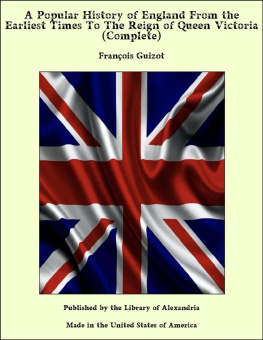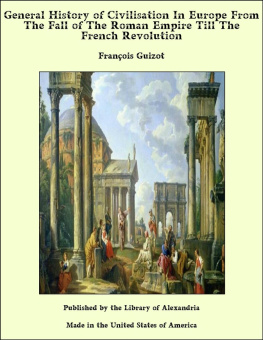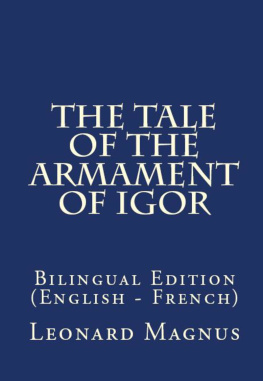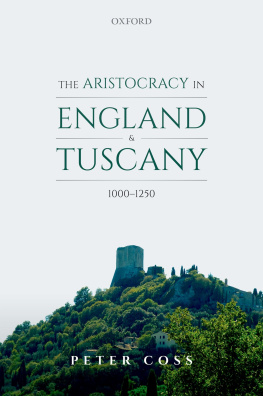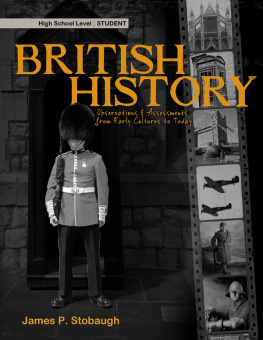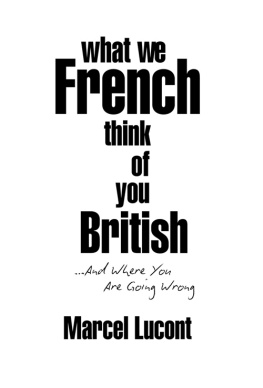First published as La Socit Anglaise 18511975
by Librairie Arthaud, Paris
1976 B. Arthaud
English translation first published in 1979 by
Methuen & Co. Ltd
2nd edition published 1991 by
Routledge
2 Park Square, Milton Park, Abingdon, Oxon, OX14 4RN
270 Madison Ave, New York NY 10016
Transferred to Digital Printing 2005
1979 Methuen & Co. Ltd
1990 Editions du Seuil
Photoset in V.I.P. Palatino by
Western Printing Services Ltd, Bristol
All rights reserved. No part of this book may be reprinted or reproduced or utilized in any form or by any electronic, mechanical or other means, now known or hereafter invented, including photocopying and recording, or in any information storage or retrieval system, without permission in writing from the publishers.
British Library Cataloguing in Publication Data
Bdarida, Franois
A social history of England 18511990. 2nd. ed.
1. England. Social conditions, history
I. Title II. La socit anglaise de 1851 1990. English
942.081
ISBN 0415016142
The author and publishers would like to thank Her Majestys Stationery Office for permission to reproduce figures 14 & 15.
this scepterd isle,
This fortress built by Nature for herself
Against infection and the hand of war,
This happy breed of men, this little world,
This precious stone set in the silver sea,
Which serves it in the office of a wall,
Against the envy of less happier lands;
This blessed plot, this earth, this realm, this England,.
WILLIAM SHAKESPEARE, Richard II
This is a letter of hate. It is for you, my
countrymen. I mean those men of my
country who have defiled it. You are
its murderers I carry a knife in my
heart for every one of you. Macmillan,
and you, Gaitskell, you particularly .
Till then, damn you, England. Youre
rotting now, and quite soon youll
disappear. My hate will outrun you yet
I wish it could be eternal.
JOHN OSBORNE, Letter to Tribune, 1961
Preface
Je cherche dchiffrer le plus indchiffrable
des peuples, le plus moral, le moins familial,
le plus mobile, le plus adapt, le plus franc et
le plus hypocrite. O est le principe?
Elie Halvy
To many people an enterprise such as the writing of this book would appear to present an impossible challenge. No one is more aware of this than the author. By its content and by its intent the book purports not only to describe the evolution of modern English society in its broad patterns, but to provide a critical assessment of this evolution, in order to interpret and explain the history of the nation. An arduous task in any circumstances, but especially so for a foreigner, for it must seem utterly presumptuous.
The social make-up, the attitudes and behaviour, the psychology of the English people during these one hundred and twenty-five years provide such a tangle of data, fleeting and contradictory at the same time, that the task may seem hopeless. As soon as one tries to analyse the true nature of the islanders, it vanishes; and in contact with it one constantly has the feeling that it cannot be grasped. This impression has indeed been shared by all those who have sought to penetrate the nations secret. Even Baron von Blow, when he was Prussian envoy in London, used to say to his compatriots who asked him his views on the country: After spending three weeks in England, I was quite ready to write a book about
The British too have felt puzzled when trying to characterize and understand their own civilization. Asking himself in 1940 what constituted the particular nature of the English nation, and how it differed from other nations, George Orwell concluded: Yes, there is something distinctive and recognisable in English civilisation. It is a culture as individual as that of Spain. It is somehow bound up with solid breakfasts and gloomy Sundays, smoky towns and winding roads, green fields and red pillarboxes. It has a flavour of its own. But such peculiar features, Orwell rightly went on, cannot be properly understood outside the historical setting:
It is continuous, it stretches into the future and the past, there is something in it that persists as in a living creature. What can the England of 1940 have in common with the England of 1840? But then, what have you in common with the child of five whose photograph your mother keeps on the mantelpiece? Nothing, except that you happen to be the same person. And above all it is your civilisation, it is you.
So it is easy to understand why foreign observers have often hesitated before launching into mastering the labyrinth without Ariadnes thread even, and indeed above all, when they have wished to be solicitous and sympathetic to the object of their study. For the more scrupulous they are, the more they feel condemned to look in from outside. Thus Elie Halvy, in the introduction to his great History of the English People in the Nineteenth Century, admitted his foolhardiness at once and confessed his fears in these terms:
Frenchmen, I am undertaking a history of England. I am attempting the study of a people to whom I am foreign alike by birth and by education. Despite copious readings, visits to London and to the provinces, and frequent intercourse with different circles of English society, I have nevertheless been obliged to learn with great difficulty, and in a manner that would seem necessarily artificial, a multitude of things which even an uneducated Englishman knows, so to speak, by instinct. I fully realize all this. Nevertheless I am firmly convinced that the risks I have taken were risks well worth the taking.
Indeed a historian must surmount these obstacles and difficulties. In
For my part, it is in this spirit that I have undertaken this work. It is for the reader to decide how good a job has been done.
Let me now try, at whatever risk, to make a list of the key problems which we have made a point of emphasizing in the pages to come. It will at least be a first step towards clarifying the field of investigation, and a way of tracing out in broad strokes the framework of our study.
(1) The history of England shows a national continuity. A territorial continuity, first of all, thanks to the rampart of the sea, but above all a political continuity. Comparison with all the other great nations of continental Europe is instructive on this point. Why did England escape not only revolutions, bloody violence and attempts at totalitarianism, but also internal upsets, civil discord and drastic changes of regimes and institutions?
(2) In a society of such clear-cut class distinctions, where social mobility has not been as real as some have made out, how has the ruling oligarchy aristocratic at first, and later bourgeois succeeded in keeping its influence as well as its prestige, and all this with the full acquiescence of the masses?
(3) How can one explain the fact that the working class as powerful in numbers as in organization fought so vigorously and doggedly, and yet so often accepted compromise when its loyalty to the representative system gave it such a key numerical advantage?


